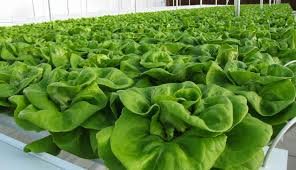Unlocking the Potential of Hydroponic Vegetables: A Sustainable Farming Revolution
In recent years, hydroponic farming has emerged as a game-changer in the world of agriculture, offering a sustainable and efficient alternative to traditional soil-based cultivation. One of the most exciting aspects of this revolution is the cultivation of hydroponic vegetables. In this article, we will explore the incredible potential and benefits of hydroponic vegetables, shedding light on how this innovative farming method is reshaping the future of agriculture.
Body:
- Optimal Growth Conditions: Hydroponic systems provide precise control over key environmental factors such as nutrient levels, pH, and water supply. This meticulous control ensures that hydroponic vegetables receive the ideal conditions for growth, resulting in faster development and higher yields compared to conventional farming.
- Water Conservation: Hydroponic farming is inherently water-efficient, utilizing significantly less water than traditional soil-based methods. The closed-loop systems of hydroponics allow for the recirculation and reuse of water, reducing overall water consumption. As water scarcity becomes an increasingly pressing global issue, hydroponic vegetables present a sustainable solution to address this challenge.
- Year-Round Production: Unlike traditional farming, hydroponic systems enable year-round vegetable cultivation. By providing a controlled indoor environment, hydroponics eliminates the dependence on seasonal changes, allowing farmers to harvest fresh, high-quality vegetables consistently throughout the year. This not only ensures a stable food supply but also opens up new economic opportunities for growers.
- Space Efficiency: Hydroponic systems are remarkably space-efficient, making them suitable for urban environments where land is limited. Vertical farming and other innovative hydroponic techniques maximize space utilization, enabling the cultivation of vegetables in areas where traditional farming may not be feasible. This aspect of hydroponics is crucial in the context of urbanization and the need to feed growing populations.
- Nutrient-Rich Produce: Hydroponically grown vegetables boast exceptional nutritional value. With precise control over nutrient levels, hydroponic systems can enhance the nutrient content of vegetables, resulting in more nutrient-dense produce. Consumers benefit from access to healthier food options, and farmers can command premium prices for their high-quality, hydroponically grown vegetables.
As we navigate the challenges of a rapidly changing world, hydroponic vegetables stand out as a beacon of sustainability and innovation in agriculture. The adoption of hydroponic farming techniques has the potential to revolutionize the way we grow and consume vegetables, ensuring a more resilient and environmentally friendly food supply. Embracing hydroponics not only addresses current agricultural challenges but also paves the way for a more sustainable and prosperous future. Join the hydroponic revolution and witness the growth of a greener, more efficient agricultural landscape.

Crisp, Fresh, and Sustainable: Embracing the Hydroponic Lettuce Revolution

